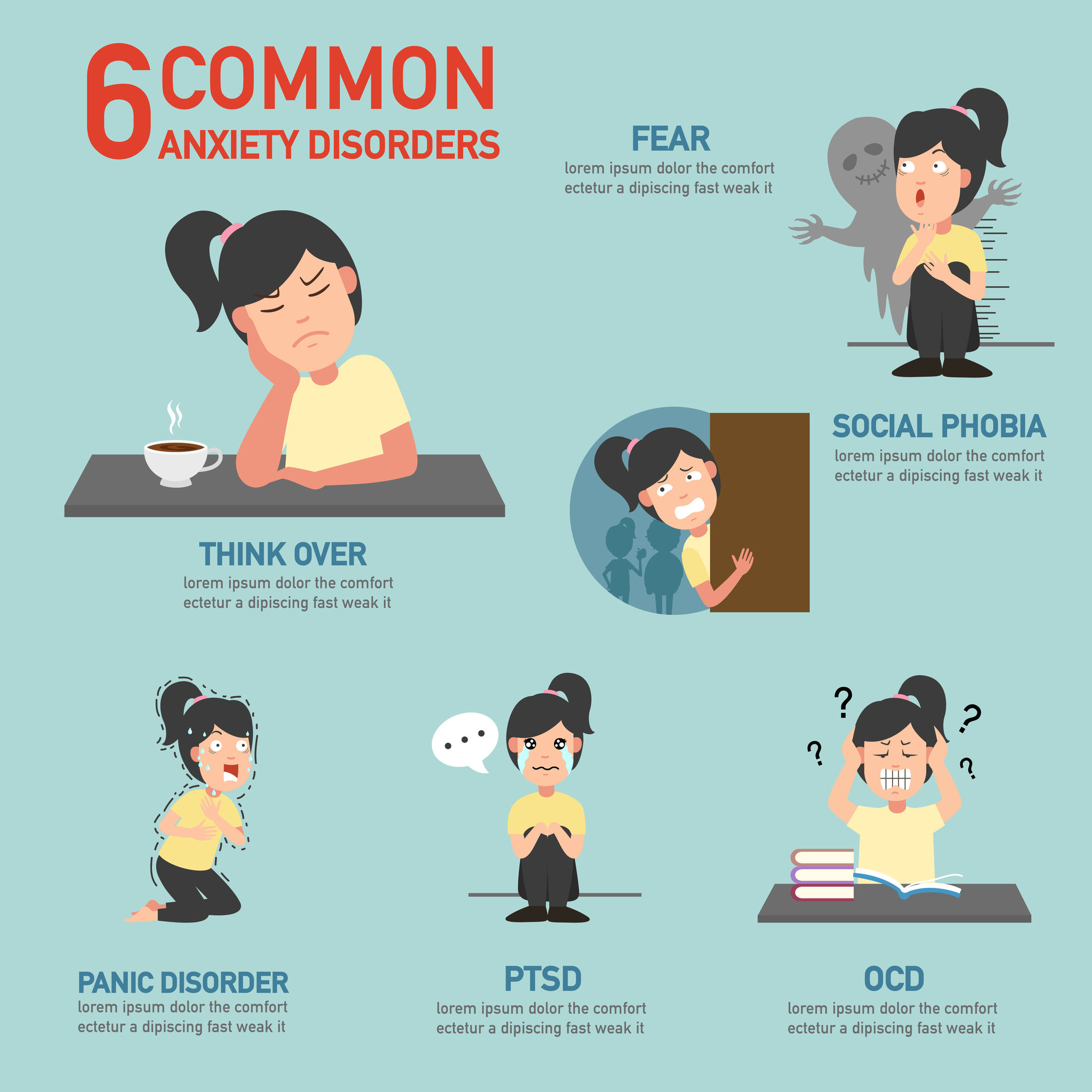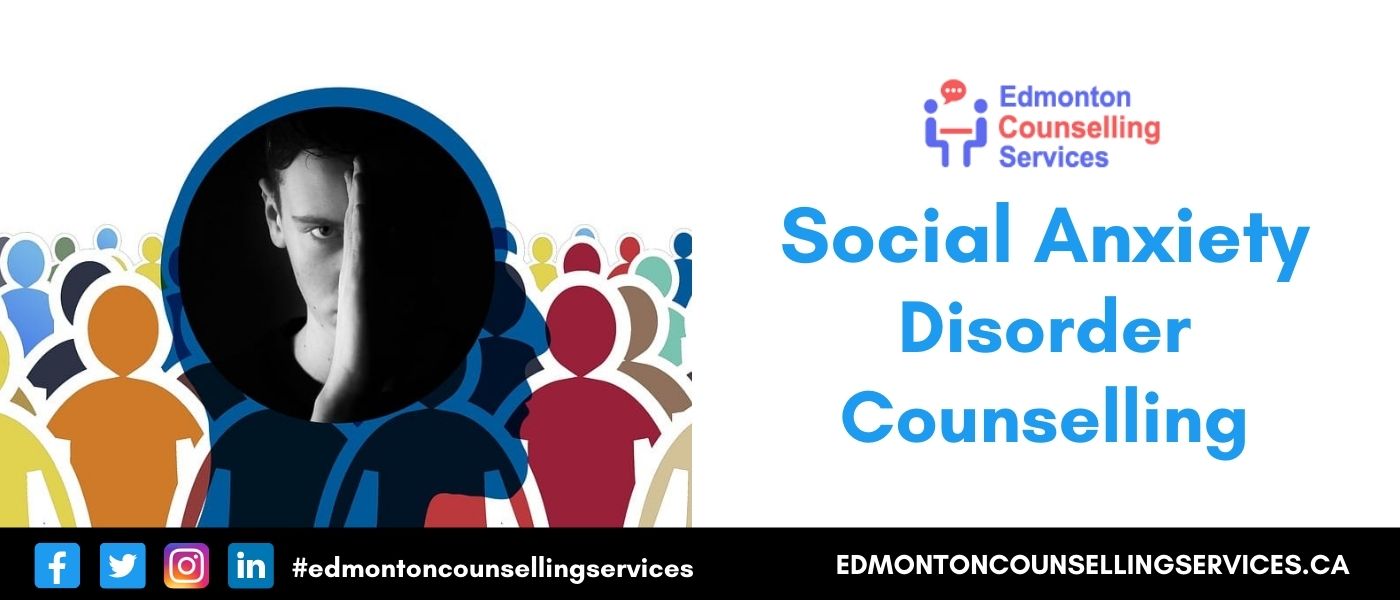Budget-friendly and accessible counselling for anxiety options available
Budget-friendly and accessible counselling for anxiety options available
Blog Article
Discovering Various Strategies in Counselling for Anxiety Disorder for Long Lasting Change
When dealing with stress and anxiety conditions, it's essential to explore a variety of counseling methods. Each method provides distinct insights and tools to help you manage your symptoms effectively. You might find that combining strategies can yield the best results. Understanding the nuances of these approaches is crucial to cultivating enduring modification. What if the ideal mix could launch a new degree of psychological wellness for you?
Comprehending Anxiety Problems: A Brief Summary
Anxiety problems, which affect numerous people worldwide, can significantly impact life. You may experience overwhelming sensations of fear or worry that appear irrepressible. These feelings can result in physical signs like a racing heart, sweating, and even lightheadedness. Usual sorts of anxiety problems consist of generalized stress and anxiety disorder, panic attack, and social stress and anxiety problem. Each has special signs, yet they all share a tendency to interrupt your regular and relationships.Understanding the root causes of your stress and anxiety is crucial. It may originate from genes, brain chemistry, or life experiences. Acknowledging your triggers can aid you handle your responses better. It is very important to keep in mind that you're not the only one in this struggle. Lots of people encounter similar challenges, and looking for assistance is a solid step toward sensation better. By learning more about anxiety problems, you're already on the course to understanding and managing your problem better.
Cognitive-Behavioral Therapy: Testing Unfavorable Idea Patterns
In Cognitive-Behavioral Treatment, you'll begin by identifying the adverse thought activates that add to your anxiousness. You'll work on changing them with more favorable choices once you acknowledge these ideas. Together, you'll build effective coping methods to aid handle your anxiety in everyday circumstances.
Determining Unfavorable Idea Triggers

Identifying the details triggers behind your adverse ideas can be essential in handling anxiety when you experience moments of distress. Start by taking notice of circumstances that provoke sensations of worry or concern. Is it a crowded space, an approaching target date, or a conversation with certain individuals? Take down these instances in a journal. This will aid you recognize patterns in your thinking. Likewise, notice physical sensations that accompany your adverse thoughts, like a racing heart or rigidity in your breast. By determining these triggers, you acquire understanding right into what's sustaining your anxiousness. Recognizing these links is the initial step in testing those thoughts and inevitably gaining back control over your emotional responses.
Changing Thoughts With Positives
Challenging negative thought patterns is an important action in changing your attitude and reducing anxiousness. You might frequently find yourself caught in cycles of self-doubt or tragic thinking. Rather than letting these ideas dictate your sensations, practice changing them with favorable affirmations or sensible alternatives. For example, when you believe, "I can't manage this," shift it to, "I can handle difficulties one action at a time." This easy adjustment can greatly influence your mood. Regularly determining and countering these adverse ideas aids produce a healthier inner dialogue. Keep in mind, it takes time and effort, but regularly practicing this method can cause lasting modification, encouraging you to deal with anxiety with renewed self-confidence and strength.
Structure Coping Techniques Together
Changing unfavorable thoughts is only the beginning of managing anxiousness properly. To develop long-term adjustment, you need to build coping strategies that empower you. Cognitive-Behavioral Treatment (CBT) assists you determine and test those purposeless idea patterns. With each other, you and your therapist can explore how these ideas effect your feelings and behaviors.Start by creating sensible methods, like journaling or mindfulness exercises, that allow you to challenge stress and anxiety head-on. When you face your anxieties progressively, you'll discover to respond differently.

Mindfulness and Acceptance-Based Approaches: Growing Present-Moment Understanding
As you navigate the intricacies of anxiety, including mindfulness and acceptance-based approaches can significantly enhance your capability to cultivate present-moment understanding. By concentrating on the right here and currently, you'll discover that you can observe your ideas and sensations without judgment (Counseling services for anxiety). This method aids you acknowledge your stress and anxiety without really feeling bewildered by it.Engaging in mindfulness workouts, such as deep breathing, body scans, or guided meditations, permits you to ground yourself in your present experience. Acceptance-based strategies motivate you to accept your feelings instead of combat versus them. When you approve your sensations, they lose their power over you.Incorporating these practices into your day-to-day regimen can change exactly how you react to anxiousness. You'll create resilience and discover to browse demanding situations with greater simplicity. Inevitably, growing present-moment awareness lays the foundation for enduring change, equipping you to lead a much more fulfilling life
Exposure Therapy: Challenging Concerns Progressively
Exposure treatment aids you face your fears in a steady means, making it less frustrating. You'll discover methods to deal with anxiety-provoking circumstances action by action, while likewise building coping approaches to handle your reactions. This method empowers you to take control and minimize anxiousness with time.
Steady Exposure Methods

When facing stress and anxiety, progressively challenging your anxieties can be a powerful method to gain back control. This method, called steady exposure, involves gradually subjecting yourself to the circumstances or items that trigger your anxiousness. Beginning with much less daunting circumstances and slowly work your means up to even more difficult ones. For circumstances, if you hesitate of public talking, you may start by talking in front of a mirror, then progress to sharing ideas with a buddy, and eventually resolve a little group. Each action helps desensitize you to the anxiety, developing your confidence in time. Keep in mind, it's vital to rate yourself and commemorate tiny victories as you relocate via this procedure, reinforcing your capability to manage stress and anxiety properly.
Building Coping Approaches
Building efficient coping approaches is essential for handling anxiety, specifically as you challenge your anxieties progressively - Counseling services for anxiety. One effective method is direct exposure therapy, where you start by encountering your worries in a regulated way. Start with much less frightening scenarios and gradually function your method approximately even more tough situations. This progressive exposure aids desensitize you to anxiety sets off, making them less overwhelming.Incorporate leisure strategies, such as deep breathing or mindfulness, to relax your mind throughout exposure. Track your development, celebrating small victories along the road to boost your self-confidence. Bear in mind, it's all right to take your time; the objective isn't excellence yet steady improvement. By constructing these strategies, you'll empower yourself to navigate anxiety and welcome life more fully
Psychodynamic Therapy: Uncovering Origin Reasons of Anxiety
Psychodynamic therapy explores the unconscious mind, exposing the origin causes of your anxiety. By analyzing your ideas, feelings, and past experiences, this technique assists you discover underlying disputes and unresolved concerns that might add to your existing stress and anxiety. You'll deal with a specialist to check out youth experiences, partnerships, and psychological patterns that shape your responses today.As you obtain understanding into these much deeper layers of your psyche, you'll begin to identify how previous events influence your existing habits. This understanding can cause catharsis, allowing you to refine emotions you might have suppressed.Through the restorative partnership, you can likewise identify defense devices that may have created in time, supplying a clearer path to change. Inevitably, psychodynamic therapy furnishes you with the devices to address your stress and anxiety at its core, advertising long lasting transformation in your emotional wellness.
Integrative and Alternative Approaches: Integrating Strategies for Greater Efficiency
Integrating different healing techniques can improve your trip toward taking care of anxiety better. By integrating aspects from cognitive-behavioral treatment, mindfulness practices, and alternative strategies, you can create a tailored strategy that addresses your one-of-a-kind needs. You could use cognitive-behavioral strategies to test unfavorable thought patterns while integrating mindfulness exercises to ground yourself in the present moment.Additionally, discovering holistic techniques such as yoga or reflection can advertise leisure and lower anxiousness signs. This blend allows you to create greater self-awareness and resilience.Experimenting with these diverse methods can aid you find what reverberates most with you. Remember, it has to do with discovering a harmony that works, instead than sticking to a solitary approach. This integrative approach not only uses instant relief but also cultivates lasting skills for managing anxiety, encouraging you to recover control over your life.
The Role of Assistance Solutions: Building Strength With Connection
While it could appear that handling stress and anxiety is a solitary trip, having a solid support group can play an essential role in your strength. Bordering yourself with empathetic buddies, family, or support system develops a safe room where you can freely share your sensations and experiences. When you attach with others, you remind on your own that you're not alone in this struggle.These partnerships provide encouragement and can give functional coping strategies that have helped others. It's likewise an opportunity to acquire viewpoint; buddies can aid you see situations in different ways, decreasing sensations of isolation.Moreover, emotional support cultivates a sense of belonging, which can substantially ease anxiousness signs. By leaning on your assistance system, you can build resilience and take on obstacles better. Keep in mind, reaching out for assistance signifies stamina, and it can make all the difference in your trip towards taking care of anxiousness.
Regularly Asked Questions
What Are the Common Signs of Stress And Anxiety Problems?
You could experience uneasyness, exhaustion, difficulty concentrating, irritation, muscle mass stress, and rest disruptions. Physical symptoms can include fast heartbeat, sweating, and trembling. Acknowledging these indicators early can aid you look for appropriate support and treatment.
The Length Of Time Does Treatment Typically Last for Stress And Anxiety Conditions?
Treatment for anxiety disorders usually lasts anywhere from a few weeks to a number of months. It truly relies on your individual needs, progress, and the methods your therapist makes use of to help you manage your anxiety successfully.
Can Medication Be Used Together With Therapy for Anxiousness?
Yes, medication can certainly be made use of together with therapy for anxiety. Combining both strategies often boosts therapy effectiveness, helping you take care of signs while exploring underlying problems through therapy (Counseling services for anxiety). Always consult your healthcare provider click here for tailored guidance
Exist Self-Help Methods for Managing Anxiousness?
Yes, there are a number of self-help strategies for handling anxiety. You can exercise mindfulness, engage in routine exercise, preserve a well balanced diet regimen, establish a regular, and utilize deep breathing strategies to help in reducing stress and anxiety signs and symptoms successfully.
How Do I Know if I Required Professional Aid for Anxiety?

Report this page